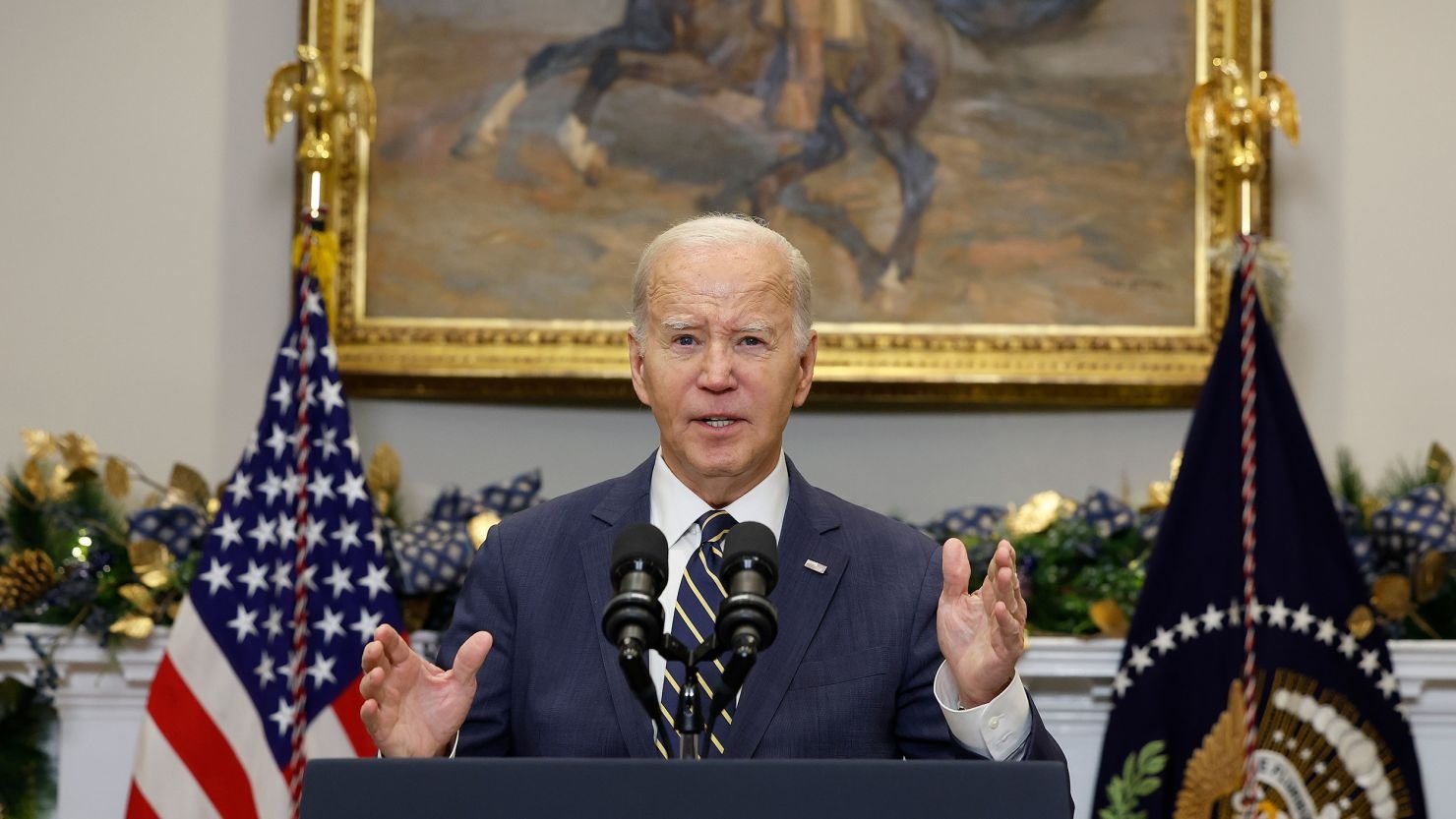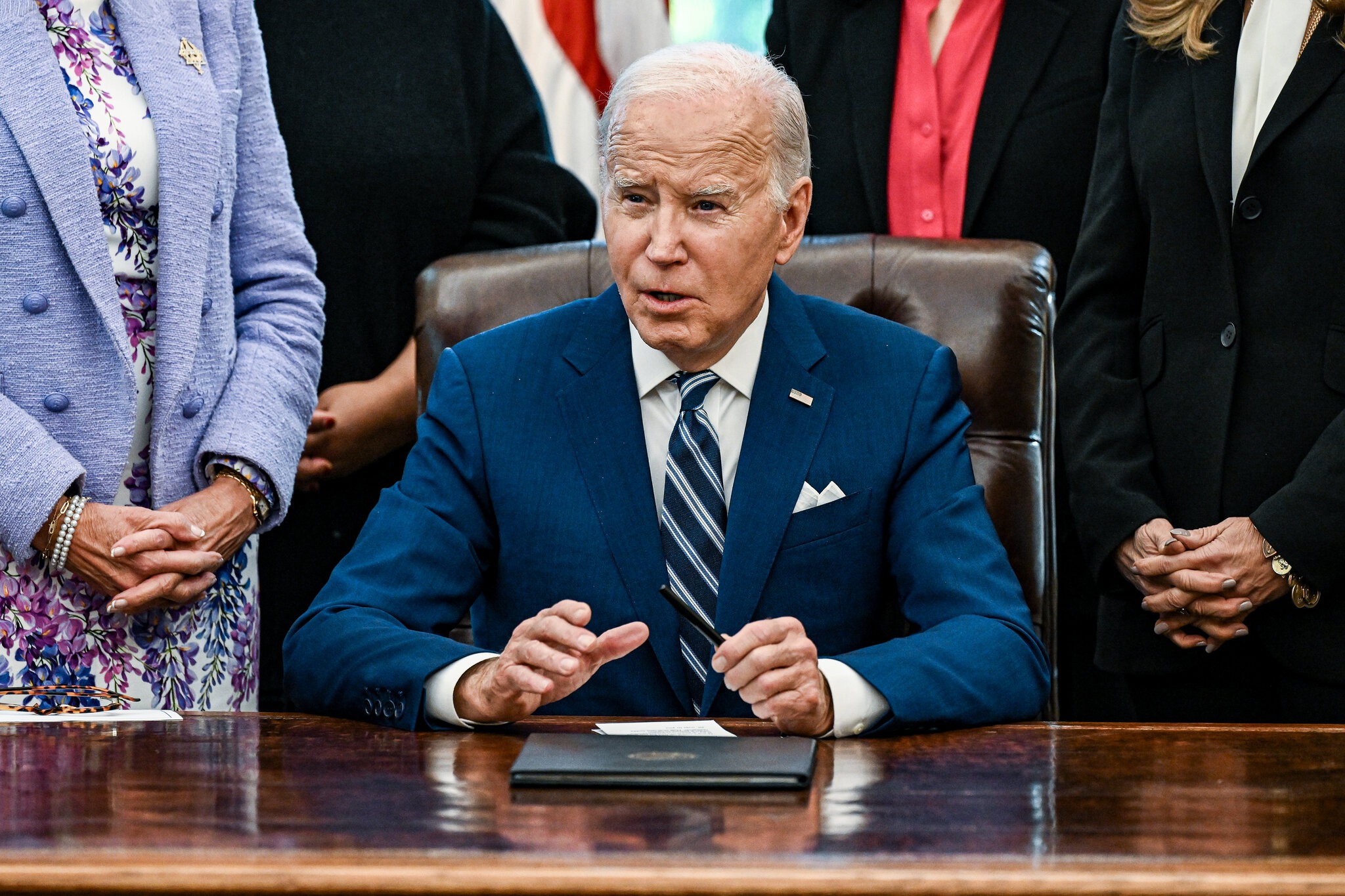The narrative emerging from the White House following Iran’s attack on Israel portrays the incident as a failure on Iran’s part, a perspective aimed at de-escalation.
This approach reflects a broader trend in the Biden administration’s strategy, which emphasizes defensive measures over proactive or retaliatory actions, suggesting a shift towards maintaining status quo rather than engaging in further conflict escalation.
Right after it happened, President Biden and his team said it was Iran’s fault. John Kirby, who speaks for the White House about security, called it a big failure for Iran’s leaders. Antony Blinken, the Secretary of State, also said the U.S. doesn’t want things to get worse but still stands by Israel.

President Joe Biden (Credits: CNN)
Contrastingly, Iranian officials portrayed their actions as measured and justified, asserting a capability to repeat such operations. This was mirrored by public celebrations in Tehran, indicating a national perception of success rather than failure.
This divergence in interpretation underscores an important geopolitical standoff, with the U.S. attempting to downplay the event’s success to avoid an escalation that might lead to an extended military engagement, reminiscent of other prolonged conflicts.
However, this tactic of playing down the attacks risks undermining the perception of a credible deterrence strategy, potentially encouraging further aggressions rather than deterring them.
The Biden administration’s cautious approach also reflects a broader reluctance to engage directly in regional conflicts, opting instead for a strategy that prioritizes defense and containment over aggressive retaliation.
This is evident in the administration’s response to ongoing provocations from Iran and its proxies in the region, which have included serious attacks on U.S. allies and interests.

Joe Biden (Credits: The New York Times)
Despite the robust defense capabilities demonstrated by Israel, the situation remains tense. Israeli officials have signaled that they do not consider the matter resolved and are prepared to respond to further provocations. This suggests a potential for further military engagement, which could escalate into a wider regional conflict if not managed carefully.
The Biden administration’s strategy, while aimed at preventing war, faces criticism for potentially allowing adversaries to perceive a lack of resolve, which could embolden further attacks. The challenge lies in balancing the need to support allies and deter aggressors while avoiding the pitfalls of becoming embroiled in another extended military conflict.
While the U.S. government seeks to project control and de-escalation in its response to the recent attacks, the reality on the ground and the strategic responses from all parties involved suggest a complex and evolving conflict scenario that may require more assertive measures to prevent escalation and maintain regional stability.























